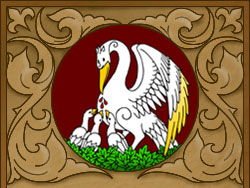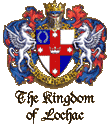
Pelicans Home Page
|
 What do Pelicans Do?Here are some of Mistress Rowan's thoughts on what Pelicans do:
Sometimes you hear people talk about different kinds of Pelicans. The paperwork Pelicans are seen as the ones who take up office, keeping the Society and the Kingdom running through dint of often-unseen effort. The people Pelicans are the ones who actively mentor and nuture others, passing on skills and experiences to build stronger, more effective groups throughout the Kingdom. The privvy Pelicans are those who are first to an event, dig the privvies or undertake other grunt work, and are often the last to leave. Most Pelicans would combine elements of all of these. And a (totally fictional) thought experiment from Mistress katherine kerr: Person One has been a member for 10 years. In that time, they have held four offices, filing their reports on time, attending officer meetings regularly. They have stewarded an annual event for 8 years which is themed around their particular interest in X. It runs to budget and has good support from the local populace. They teach classes in X once or twice a year, and have had a household of 8 people that functions as a tight unit. Person Two has been a member for 10 years. They have held two offices. In one, they took over temporarily from a faltering Officer, cleared up the accounts, got up to date with the reporting, trained a deputy and set up procedural/support structures that would help avoid or mitigate the situation that led to the initial problem. They have stewarded two events. One of these was a major event which involved them organising and supporting a number of sub-steward teams that led to the local group having a batch of competent stewards who went off and organised other events. Which one do you see as the Pelican? Other thoughts on peerage and the role of PelicansKnights hit things. Laurels make things, Pelicans make things happen. The Master doesn't talk, he acts. When his work is done, the people say, "Amazing: we did it, all by ourselves!" Many people in the SCA work hard, without necessarily being Pelicans. They may slog away, for example, washing dishes after feasts and do that year after year. A Pelican is someone who may start off washing dishes, but who then progresses to organizing dishwashers, comes up with ways to entice people into volunteering, develops a manual for how to recruit dishwashers or how to ensure proper sanitation procedures are followed, and does all this in a courteous way that doesn't lead to people being browned off or burnt out. That is the difference between work and service, between a hard-working member of the populace and a member of the Order of the Pelican. It is a Pelican's job to do their best to make sure that everyone is enjoying themselves. Everyone including the Pelican.
That's why it is important for a Pelican to be able to assess tasks, to figure out of they really need to be done, to figure out who would enjoy doing them, and to work out ways to make them enjoyable if they are not naturally fun tasks. Take the George Bailey test (from the film It's a Wonderful Life): pretend, for a moment, that the person in question never ever participated in the Society. Look at the result and see how much you like or dislike it. How big a hole in how many hearts do you see? For what truly makes a peer isn’t talent or tough hide or a piece of paper. It is a willingness to put other’s enjoyment at least equal to, and often ahead of, your own. It is a desire to pass on your knowledge and talents to those who would wish to learn. It is the ability to do this with a smile on your face and a kind word of encouragement on your tongue. It is a caring about the SCA and the people in it. Discussions about peerage on other websites:
The Dialogue of Chivalry of Duke Finnvarr de Taahe If you have business with the Order, please contact the Pelican Clerk If you have any comments or suggestions for this website, please contact the Pelican Webwright. This website was designed by Lord Ronan mac Briain |
